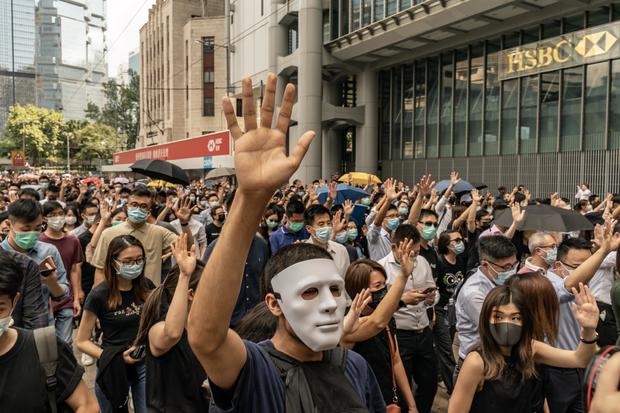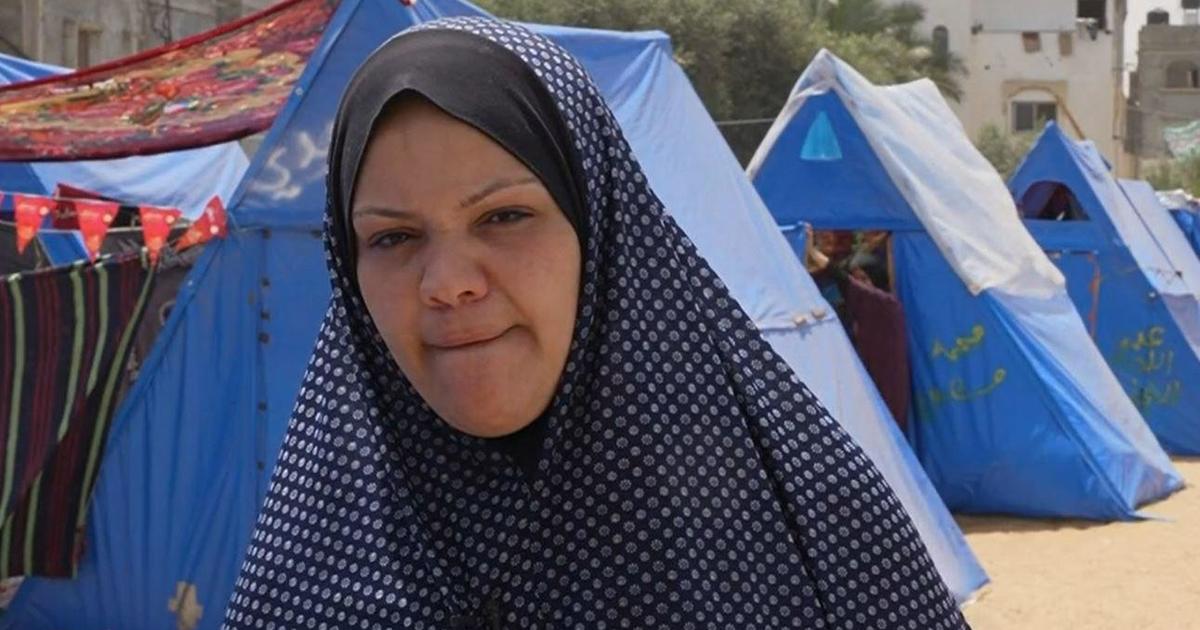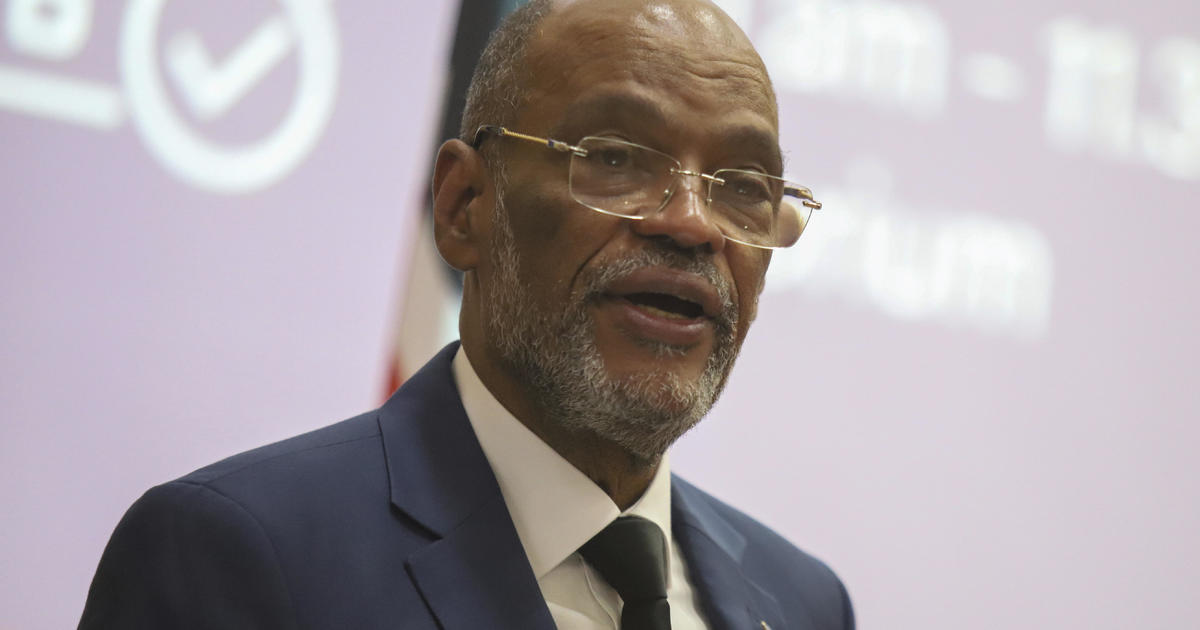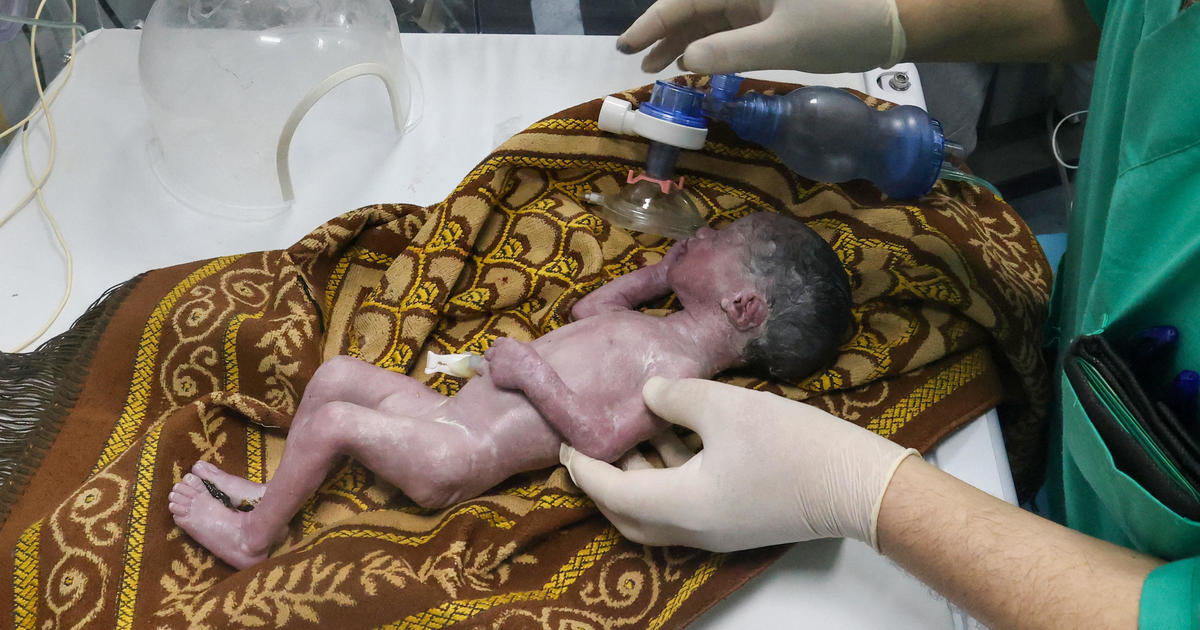Hong Kong protesters rage as leader Carrie Lam bans them wearing masks under emergency law
Hong Kong — Hong Kong leader Carrie Lam banned protesters from wearing masks Friday in a hardening of the government's stance on the territory's most disruptive crisis since it reverted to Chinese rule in 1997. Lam announced the ban at an afternoon news conference where she decried a recent escalation of violence after four months of anti-government demonstrations.
The mask ban, imposed under a colonial-era Emergency Ordinance, takes effect Saturday and applies to any procession of more than 30 people and any assembly over 50-strong, but exempts those who wear masks for "legitimate need," according to Secretary of Security John Lee Ka-Chiu.
CBS News correspondent Ramy Inocencio said Lam invoked the Emergency Ordinance but insisted it "does not mean Hong Kong is in a state of emergency." She said the decision was made with an objective "to end violence and return to peace," but it only angered pro-democracy protesters further. Thousands poured into Hong Kong's streets wearing masks, eager to show defiance against the looming ban.
Sporadic clashes broke out, with police resorting yet again to tear gas to control angry crowds.
The U.S. State Department warned Americans to avoid areas where demonstrations had broken out, "in response to the government's decision to invoke the Emergency Regulations Ordinance to ban face masks."
"People are asking can Hong Kong go back to normal? Is Hong Kong still a place where we can have our sweet home?" Lam said as she announced the ban. "We must stop the violence," she said. "Now, it's all over Hong Kong."
Lam claimed the ban only targeted violent protesters and rioters and would "be an effective deterrent to radical behavior."
The ban makes the wearing of full or partial face coverings, including face paint, at unauthorized gatherings punishable by one year in jail. A six-month jail term could be imposed on people who refuse a police officer's order to remove a face covering for identification.
But as Inocencio reports, many in the pro-democracy movement view the ban as another move to impose authoritarian restrictions — like those that mainland Chinese residents live under — in Hong Kong. Even before Lam confirmed it, the ban was already fuelling anger on the streets, and her announcement set off a fresh wave of protests.
Thousands of masked protesters chanted slogans calling for greater democracy as they marched in the city's business district before Lam spoke. They chanted "I want to wear face masks" and "Wearing mask is not a crime" as many cars, stuck in traffic due to the march, honked in support.
"Will they arrest 100,000 people on the street? The government is trying to intimidate us but at this moment, I don't think the people will be scared," one protester, who gave his surname as Lui, told an online live broadcast.
Asked by Inocencio whether her administration had come under pressure from Beijing to enact the mask ban, Lam insisted there was "no such thing" as "approval" by the central Chinese government for her to make such decisions.
"There was absolutely no interaction, discussion, encounters whatsoever with any Central Peoples Government officials on this matter during my very brief stay in Beijing," Lam insisted. She was in Beijing earlier this week to join other Chinese officials at ceremony's marking the 70th anniversary of China's Communist Party.
Many Hong Kongers view Lam, who was appointed by Beijing, as an instrument of the Chinese government's power — a view she has been at pains to dispel since the protests began.
Lam wouldn't rule out a further toughening of measures if violence continues. She said she would not resign because "stepping down is not something that will help the situation" when Hong Kong is facing "a very critical state of public danger."
"We must save Hong Kong, the present Hong Kong and the future Hong Kong," she said. "We can't just leave the situation to get worse and worse."
Analysts said the use of the Emergency Ordinance for the first time in over half a century set a dangerous precedent. The law, a relic of British rule enacted in 1922 to quell a seamen's strike and last used to crush riots in 1967, gives broad powers to the city's chief executive to implement regulations in an emergency.
"Even though the mask ban is just a small move under the Emergency Ordinance, it is a dangerous first step. If the anti-mask legislation proves to be ineffective, it could lead the way to more draconian measures such as a curfew and other infringement of civil liberties," said Willy Lam, adjunct professor at the Chinese University.
The ban followed widespread violence in the city Tuesday that marred China's National Day and included a police officer shooting a protester, the first victim of gunfire since the protests started in June over a now-shelved extradition bill. The wounded teenager was charged with attacking police and rioting.
The movement has snowballed into an anti-China campaign amid anger over what many view as Beijing's interference in Hong Kong's autonomy. More than 1,750 people have been detained so far.
Activists and many legislators have said the mask ban could be counterproductive, impractical and difficult to enforce in a city bubbling with anger and where tens of thousands have often defied police bans on rallies.
Initial reaction from abroad to the ban struck a cautious tone on Friday, but did not directly criticise the move.
U.N. human rights spokeswoman Marta Hurtado said "any restriction must have a basis in law and be proportionate and as least intrusive as possible... Freedom of peaceful assembly is a fundamental right and should be enjoyed without restriction to the greatest extent possible."
In London, British Foreign Secretary Dominic Raab told reporters political dialogue was the only way to resolve the standoff , "While governments need to ensure the security and safety of their people, they must avoid aggravating and instead reduce tensions,"
Honk Kong's government last month withdrew the extradition bill, widely slammed as an example of the erosion of Hong Kong's freedom, but protesters have widened their demands to include direct elections of the city's leaders, an independent inquiry into alleged police brutality, the unconditional release of protesters and not characterizing the protests as riots.
"Five demands, not one less!" many protesters shouted during Friday's rallies as they held up five fingers.




